This year, UNCG recognized Juneteenth by creating “a walking tour of significant, historical locations on UNCG’s campus that demonstrate steps towards liberation and equality for African Americans at UNCG and in society.” Please read more about each stop on the tour by selecting this link.
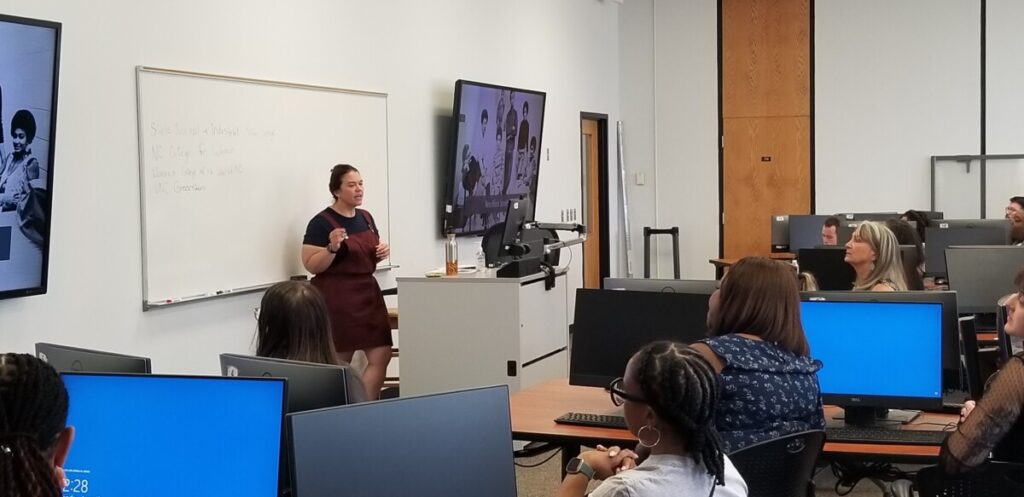
Erin Lawrimore, University Archivist and Engagement Coordinator, provided an engrossing presentation about the history of African Americans at UNCG and their contributions. After the presentation, attendees were invited to a reception and the official opening of the Passport to Juneteenth@ UNCG exhibit housed in the Hodges Reading Room.
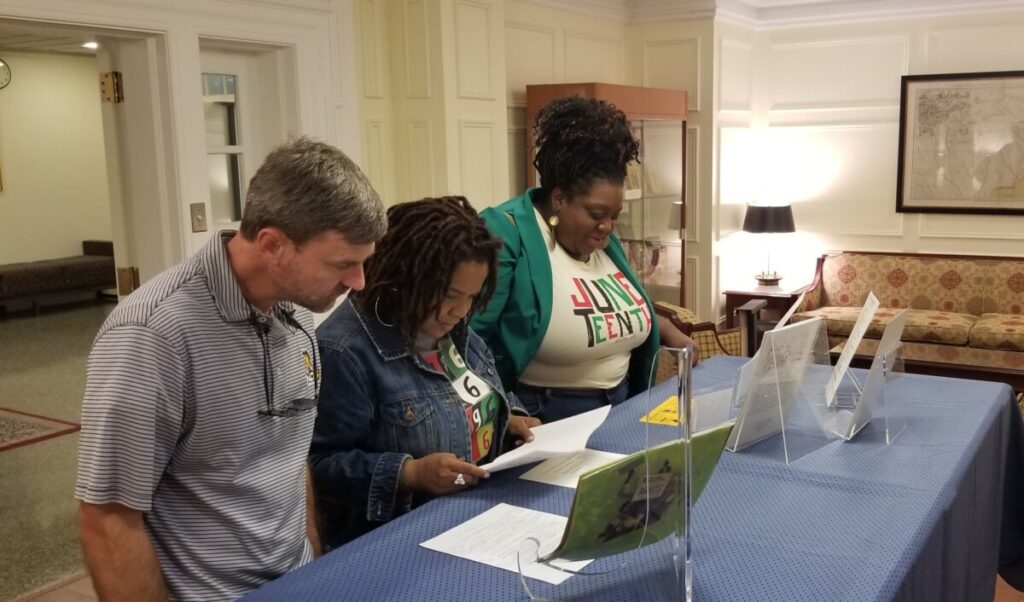
The Passport to Juneteenth pop-up exhibit was available from June 19th through June 30th, 2023. This exhibit was an immersive experience which incorporated resources from Rare Books, University Archives, Manuscripts, and the Women Veterans Historical Project. The display materials spanned from 1773 to 2023 and included not only printed materials but also textiles, photographs, artifacts, artwork, and oral histories. A gallery of images is shown below, highlighting the variety of collections which were included. This exhibit came together due to the collaborative efforts of each curator in SCUA.
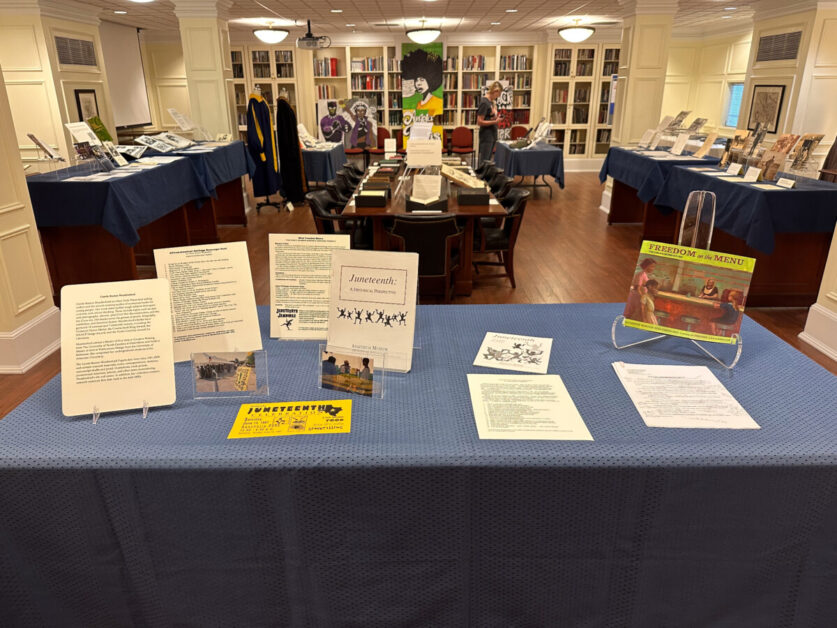
Carole Boston Weatherford is a New York Times best-selling author and the award-winning author of numerous books for young people. Her work often tackles tough subjects that spark curiosity and critical thinking. These include topics such as: jazz and photography, slavery, post-Civil War Reconstruction, and the Jim Crow era. Her books cover the genres of poetry, biography, nonfiction, and historical fiction.
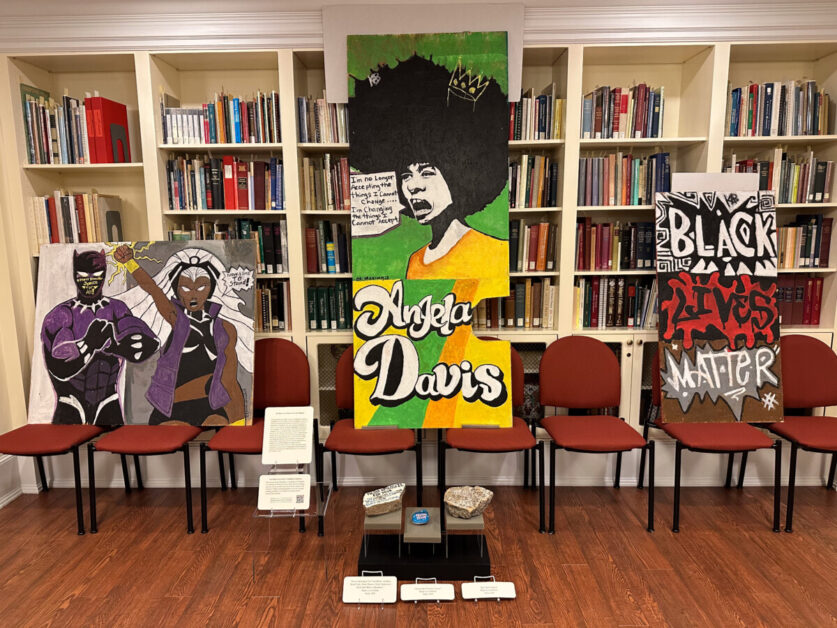
During the Summer 2020 marches protesting the death of George Floyd at the hands of law enforcement, an army of artists descended upon the plywood-shuttered stores of downtown Greensboro, NC, answering the pandemic of police violence against the Black community with beauty and messages of unity and hope. One of these artists was Amari Brown, a Greensboro local, who painted several murals on Elm Street. Amari Brown’s art is inspired by the heroes of the comic book world. Brown was particularly interested in using his style of art to reach out to children witnessing the marches, inspiring them to be heroes of social justice.
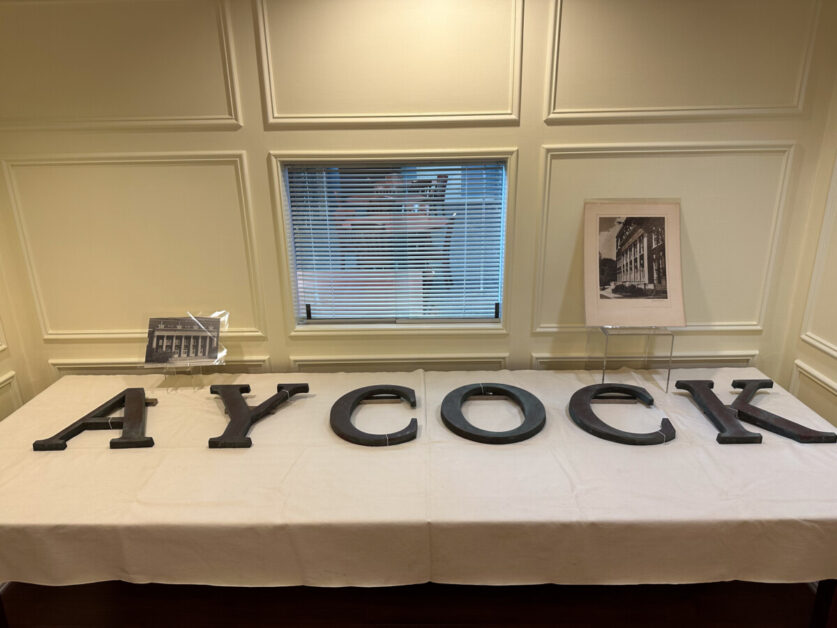
In 2014, an ad hoc committee was formed to gather information for the Board of Trustees to use in determining whether to remove Governor Aycock’s name from the auditorium. This committee explored the historical connection between Aycock and UNCG, reported on renaming processes at other institutions, and collected feedback from the campus community through two public forums and an online survey.
In February 2016, the Board of Trustees recommended the removal of Aycock’s name from the auditorium. They found that “while given Governor Charles B. Aycock had many accomplishments, Governor Aycock’s beliefs, actions, and resulting reputation related to matters of racial discrimination are contrary to the best interests of the University given its current mission and values.”
The metal letters were removed and transferred to the Martha Blakeney Hodges Special Collections and University Archives.
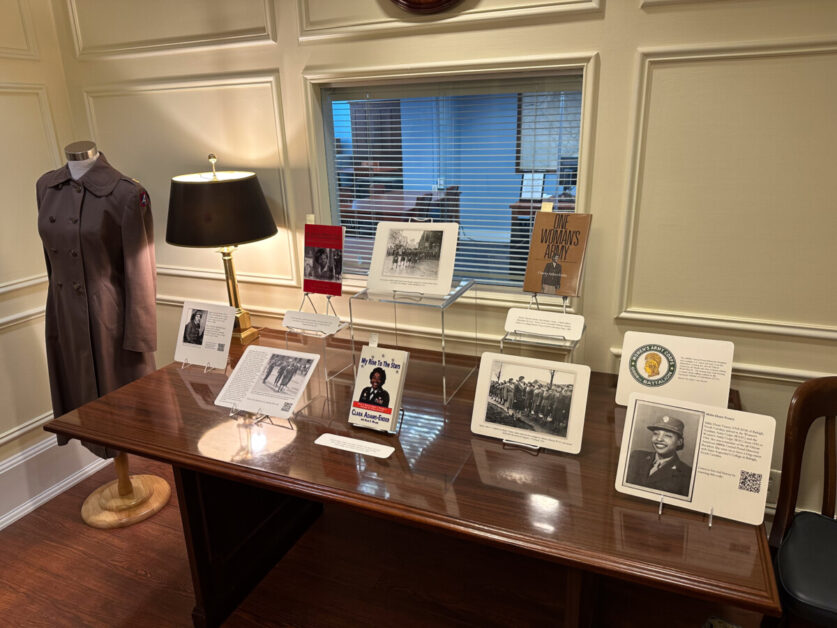
To recognize the contributions of African American women in the United States military, there were items from the Betty H. Carter Women Veterans Historical Project. The oral history of Millie Dunn Veasley, who served in the all African American 6888th Central Postal Directory Battalion, was included as well as Jean Moore Fasse’s oral history and published memoir, amongst others.
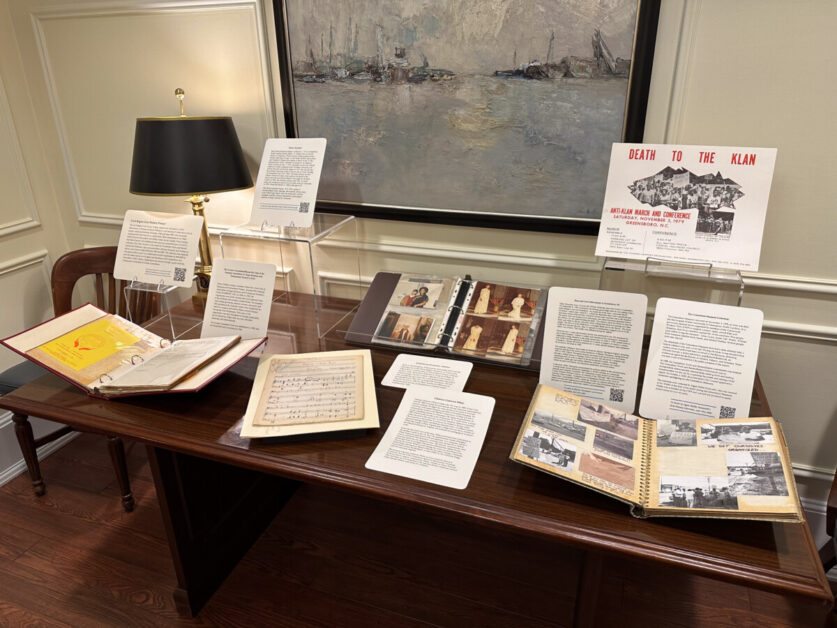
SCUA’s Manuscript collections include a variety of holdings demonstrating African American contributions to civic organizations with the Greater Greensboro/Reidsville Club of the National Association of Negro Business and Professional Women’s Clubs; to music with the scrapbook featuring Wilhelmenia Fernandez, soprano; and to justice with Judge Elreta Alexander’s papers.
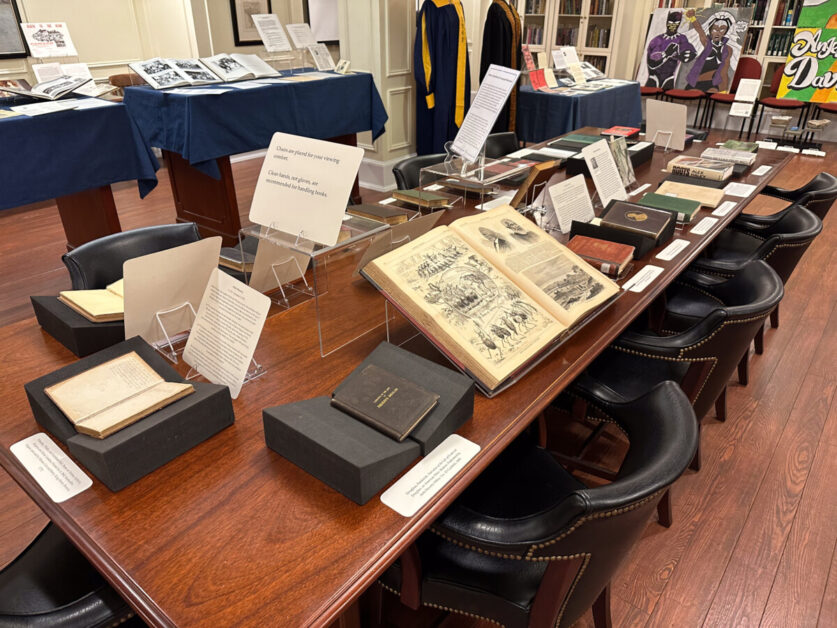
The Rare Books collection houses works written by Black authors beginning with Phillis Wheatley’s Poems published in London in 1773 while she remained enslaved, Frederick Douglass’ first autobiography published in 1845, to Harriet Jacob’s fictionalized account of her life as a free colored woman in the North, published in 1859, to Alex Haley’s Roots, and artists’ books published in the 21st century.
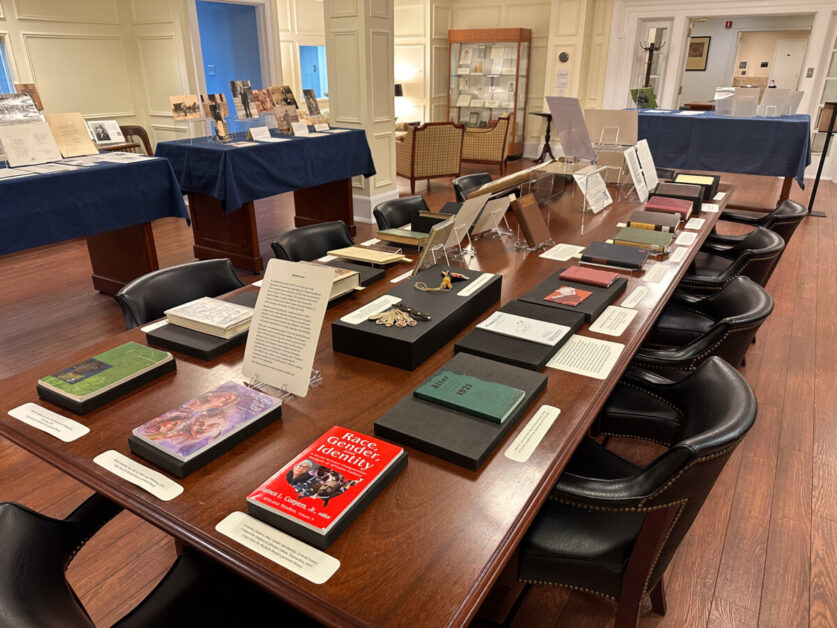
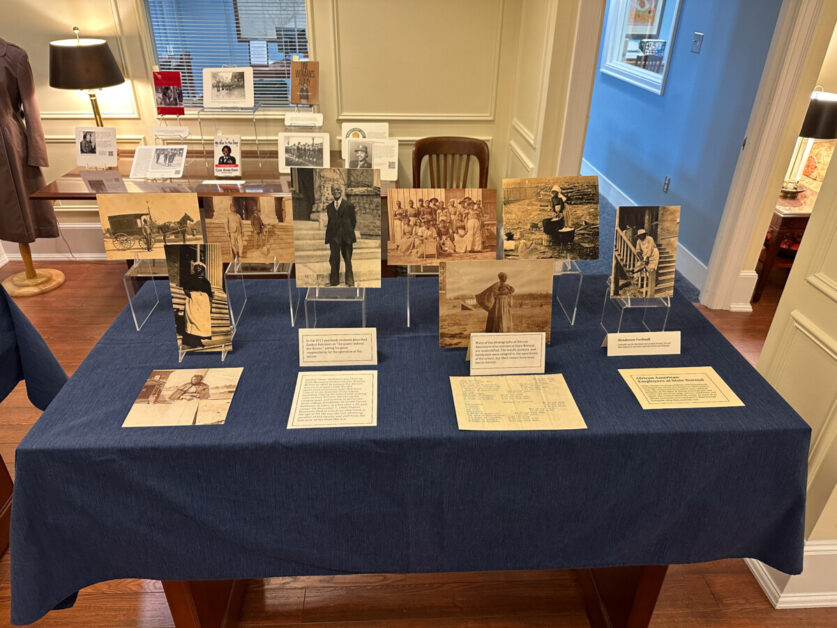
Collections housed in University Archives document early African American employees at the State Normal School, now UNCG. One of the best known is Ezekiel Robinson, who served for 43 years in a position now equivalent to the Head of Facilities. Mr. Robinson had worked for Charles Duncan McIver at Peace College, now William Peace University, in Raleigh.
As the college and university grew, so did its need for more Facilities staffing. This table held materials from the 1940s to 2020s documenting those staff members’ contributions and oral histories.
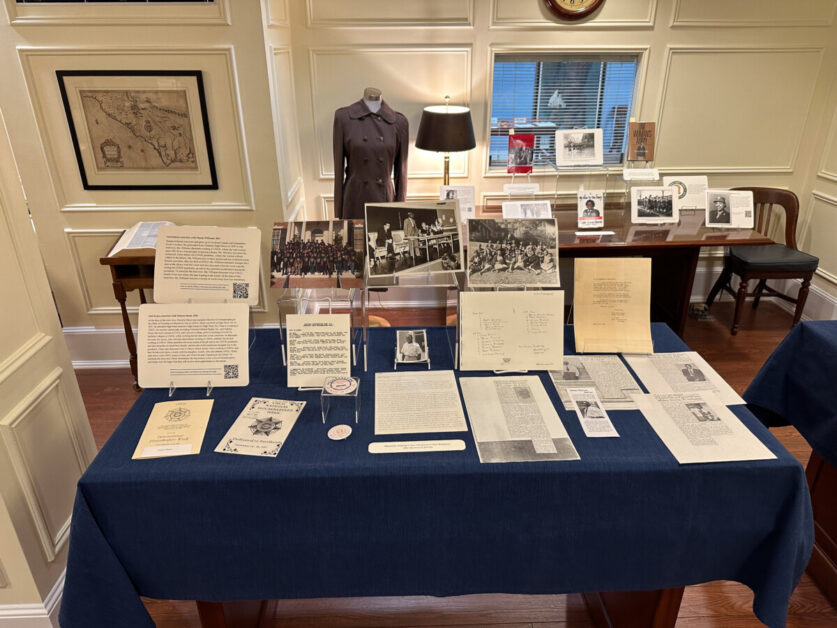
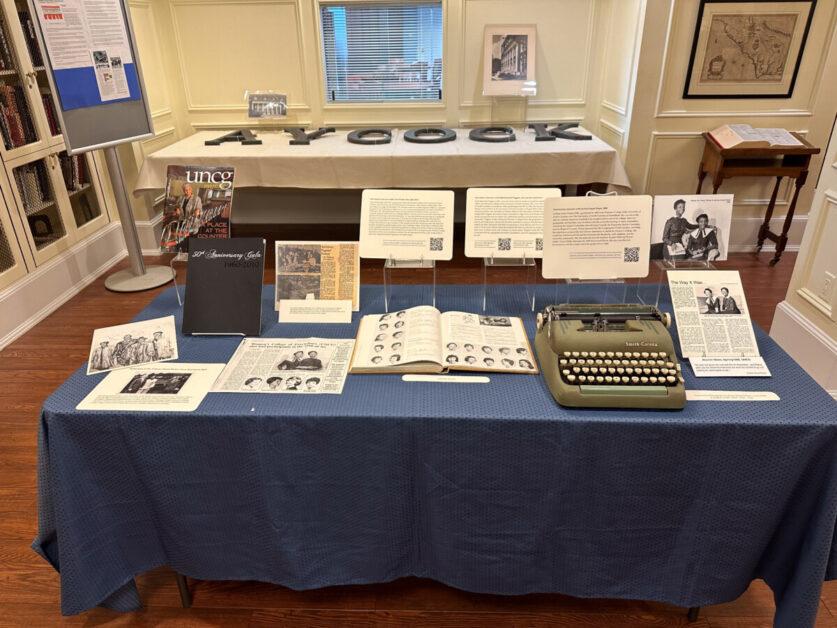
In the fall of 1956, two African American students, JoAnne Smart Drane and Betty Tillman, enrolled at Woman’s College, now UNCG. This exhibit table included materials related to their time at Woman’s College, as well as the 1960 sit-in held at the Woolworths lunch counter on South Elm Street in Greensboro, NC. Of special note was the original news clipping, saved by JoAnne Smart Drane’s mother and presented to Chancellor Patricia Sullivan in 2004, about the 1960 Woolworths sit-in.
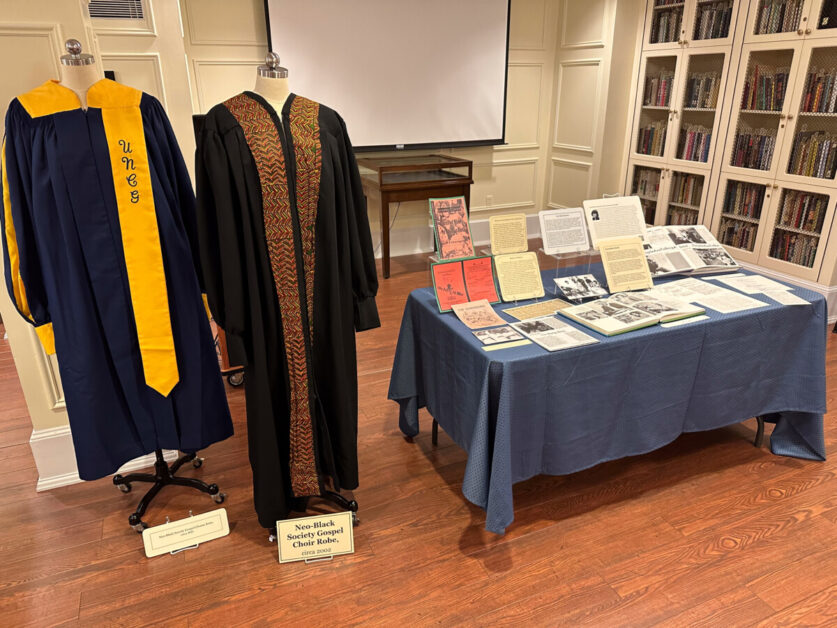
The Black Power Forum, held on campus in 1967, provided an impetus to create the Neo Black Society at UNCG. Soon after, the first full-time African American faculty member, Dr. Ernestine Small was hired.
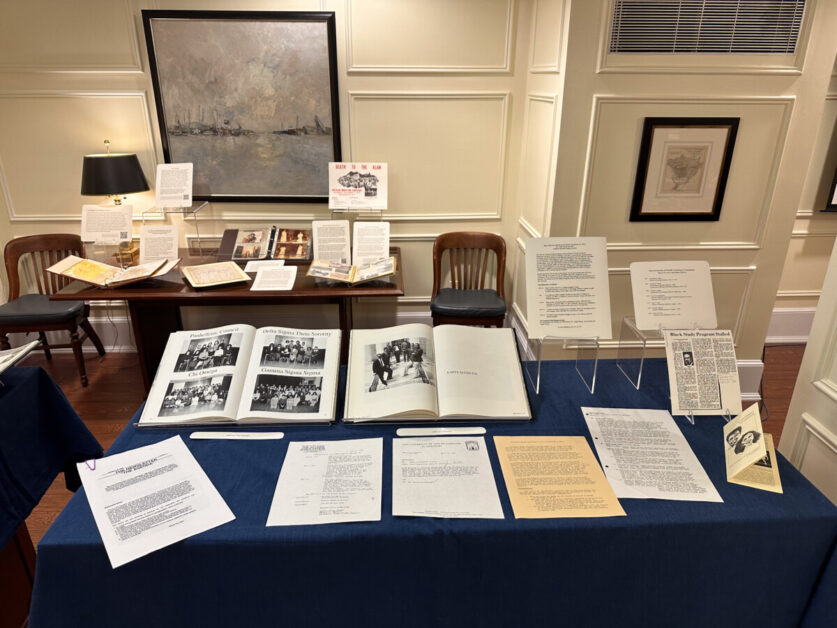
The 1970s-1990s brought tremendous growth in the number of African American students, alumni, and faculty members, as well as the creation of African American Studies, now African American Diaspora Studies. This program grew from two courses in 1982 to a bachelor’s degree program in Fall 2002. The materials on exhibit documented the process involved in creating such a program of study and highlighted the successful contributions of past directors, such as Dr. Frank Woods.
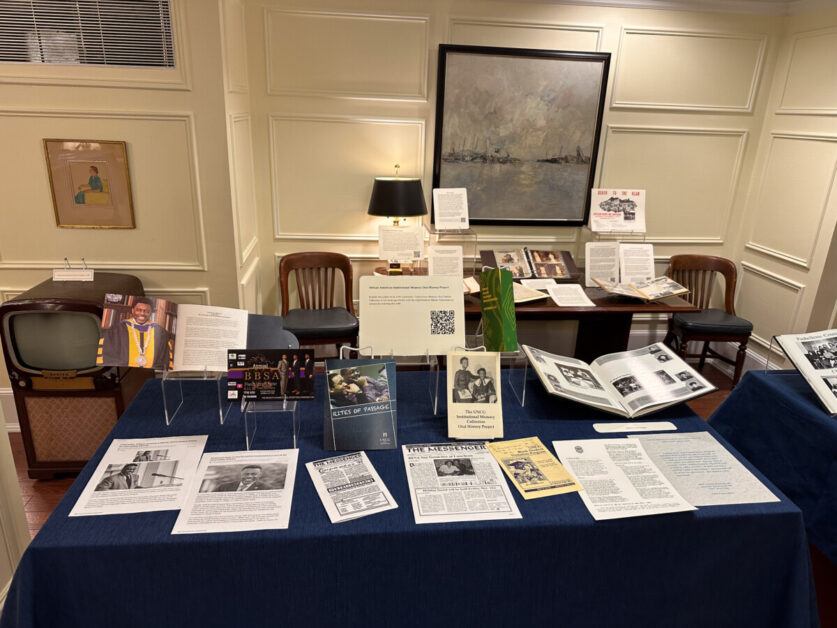
The 1990s to 2020s saw increased recognition of the important contributions made by African Americans at UNCG. The African American institutional Oral History Memory Project, can trace its origins to conversations with the University Archivist in 2008. Now the collection, begun in 2010, holds over 40 oral histories of former African American UNCG alumni.
This exhibit was made possible by the contributions of curators and staff of the Martha Blakeney Hodges Special Collections & University Archives: Jennifer Brooks, Patrick Dollar, Suzanne Helms, Scott Hinshaw, Beth Ann Koelsch, Stacey Krim, Erin Lawrimore, Sean Mulligan, Audrey Sage, Carolyn Shankle, Kathelene McCarty Smith, and Nathan West. Photos courtesy of Scott Hinshaw and Carolyn Shankle. Curation of the exhibit: Carolyn Shankle.